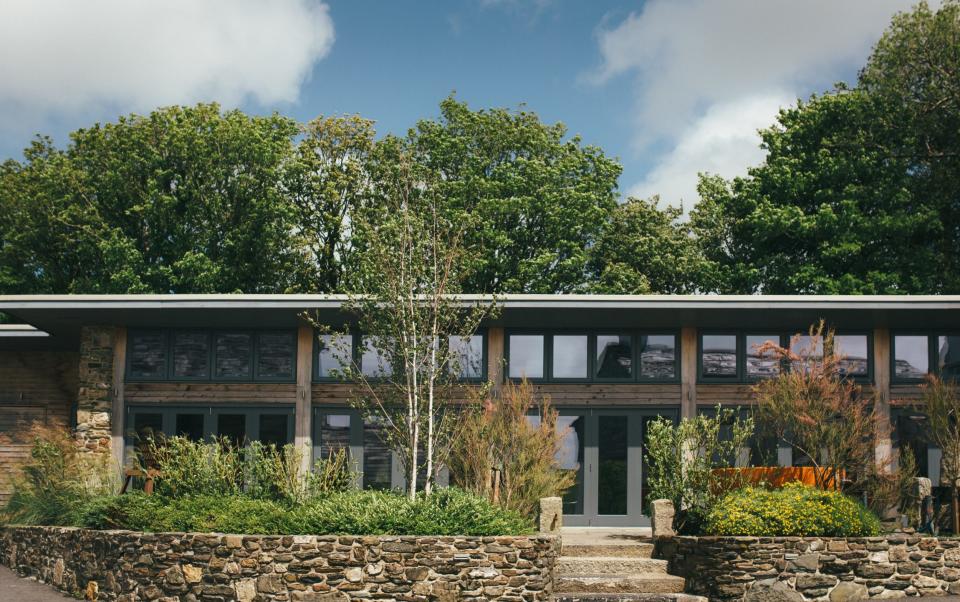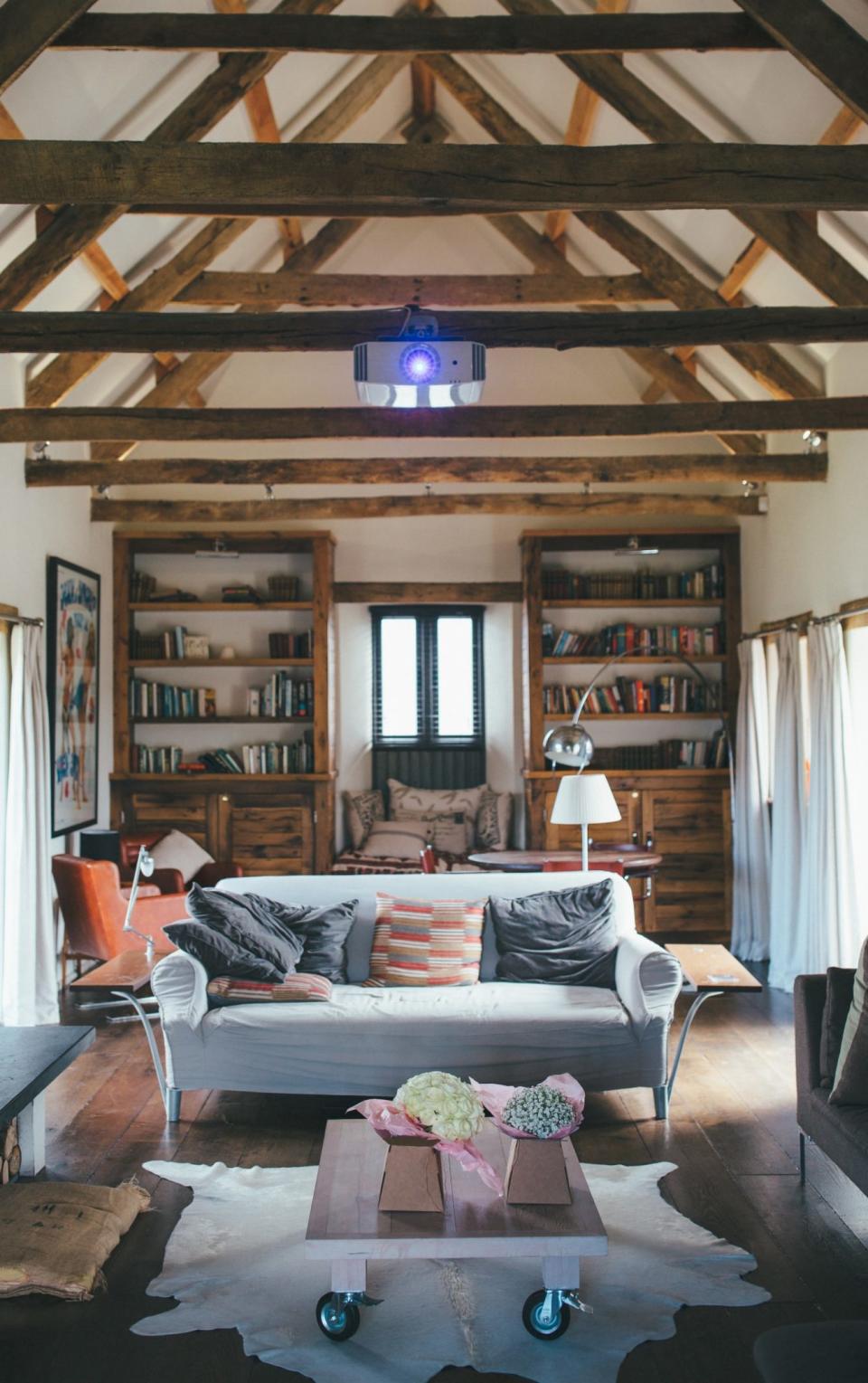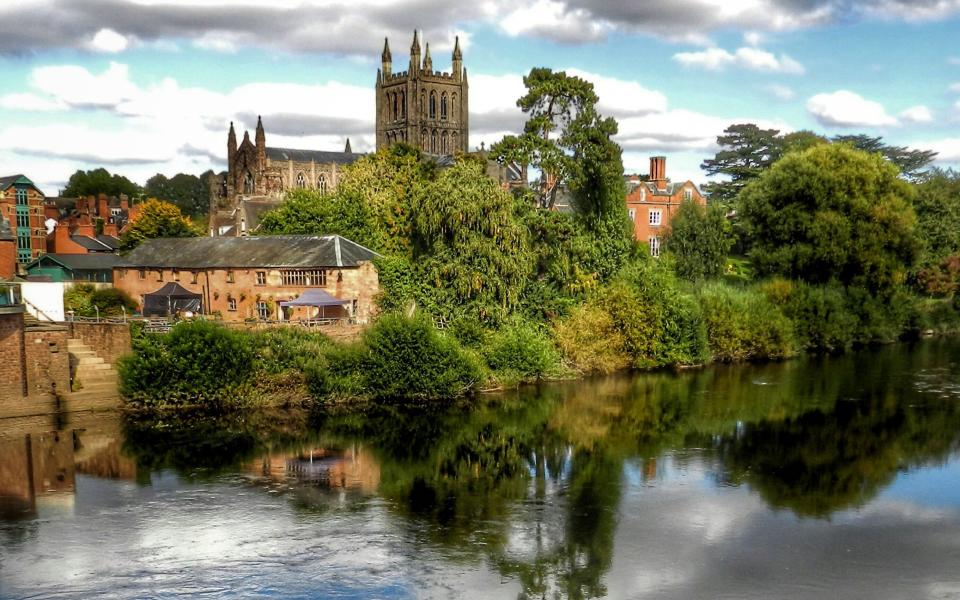All the recent rain seems to have put a damper on holidays in Britain. Accommodation providers say bookings were slow at the start of the year but are gradually picking up again. And Visit Britain’s latest domestic travel sentiment tracker, a survey that measures overnight stay intentions, has found that our weather is currently the second biggest barrier to a night away at home – surpassed only by the rising cost of living .
A quarter of those surveyed for the report plan to move to cheaper housing this year, although that may be easier said than done. According to analytics firm AirDNA, the average nightly rate for a UK short-term rental over the past 12 months was £184, up 12 percent year-on-year. In France, Italy and Spain this was €149 (£128), €172 (£148) and €171 (£147) respectively. Add to that a significantly greater chance of sunshine and the idea of going abroad becomes very tempting.
Despite all this, the number of short-term rentals in Britain continues to grow. According to AirDNA, they are up 19.4 percent over the past 12 months compared to 2019, despite only reaching pre-pandemic levels in 2023.

“Before Covid, the market was too crowded – too many agents, too many properties –,” says Ken Aylmer of Tregulland & Co, which has four holiday lets in the West Country. “And then, after Covid, everyone set up glamping in their backyard or hid their stuff under the bed and rented out their house on Airbnb. I think this year has probably been a bit of a shock for people because business has dropped off and some people have spent quite a lot of money. There is actually too much choice.”
Faced with an oversaturated market and declining demand in part of Britain, owners are being forced to up their game by adding amenities and activities designed to differentiate them from the competition and from self-catering in Britain a much more attractive prospect. Some of these have quickly become de rigueur.
“High-speed Wi-Fi will be the most in-demand amenity in 2024,” says Andy Easton of holiday rental company Beach Retreats. He also calls charging electric cars important. “Travelers may find themselves in an unfamiliar part of the country with the dreaded distance anxiety.”
Clean living
British holiday homes used to be quite dusty (witness the dilapidated Crow Crag in Withnail & I), but guests now want to show up and find everything pristine. “It’s their home for the week, so they expect the walls to be free of wear and tear, a fully equipped kitchen and spotless bathrooms – as if they were the first people to stay there,” says Easton.
A Crow Crag approach to interior decorating isn’t enough either. “Interiors need to be professionally designed and professionally photographed as there is a lot of competition and your images are the key to winning over guests,” says Ashley O’Leary of Kent-based Deal Holiday Lets.
Then there is the simple hot tub. Once a bit of a novelty, it now appears in everything from shepherds’ huts to grand mansions across the country. Research by Lake District specialists Lakelovers in 2023 found that bookings for properties that had one had increased by 104 percent.
Some places to stay go even further, adding more eccentric ways to connect with the outdoors. At Architects Holiday in Sussex, the Chinese pavilion-inspired outdoor sauna has proven to be a big hit with guests.
Meanwhile, floating on Blackbird, Tregulland & Co’s houseboat on a private lake in North Devon, Aylmer and his wife Illona have taken bathing to another level. At the end of 2020, they converted a shed on the lake into a luxurious bathhouse, complete with a claw-foot tub.


“It’s good to have a USP, and when you go out as a couple it’s really nice to be able to take a long, lazy bath. We thought about putting a bathtub on the front deck, but there wasn’t enough room. Once we came up with this idea it was a no-brainer and it has proven to be very popular. You don’t have to light a fire, you just have to turn on the tap,” he says.
As many families welcomed the chatter of little paws during lockdown, accepting pets has also become the norm – even if it means more damage to floors and soft furnishings. In its research, Lakelovers claimed that 34 percent of current bookings came from guests planning to bring a pet.
Five star service
Vacation rentals not only pit themselves against each other, they also have to compete with hotels. As a result, many are now offering perks to rival – or even beat – the local five-stars.
Tregulland & Co places cozy bathrobes and luxury toiletries in all its bathrooms, while Deal Holiday Lets prides itself on its unexpected extras. “Some of our cottages have a bread maker and guests come over to warm up fresh bread,” says O’Leary. Others get home-baked cakes.
At Westbrook Court, a large country house near Hay-on-Wye, the long list of activities available ranges from ax throwing to belly dancing, through spa treatments and chocolate making. Owner Kari Morgan acts as concierge, introducing guests to the region and helping them get the most out of it.


“All activities provide a wonderful Herefordian experience. We can book different workshops for everyone – all ages, both on-site and off-site,” she says.
Price wars
Owners and agents are also embracing creative discounts to bring in more guests. It means there are bargains to be had – especially in regions where demand is falling (AirDNA names London and Surrey among places where bookings are falling).
“We used to have three-night weekends and four-night weeks,” Aylmer says. “But we are now staying two nights in our smaller accommodations. People don’t necessarily want to have a Monday off, so maybe they’ll do Friday and Saturday now, and we might offer them a late checkout on Sunday.
“In the large properties, if there is only a few months before the date of the visit, we offer under-occupancy rates. Guests might take two bedrooms and leave the other unmade: you get all the luxury and facilities of the big houses and the place all to yourself; we get less washing and cleaning costs and less wear and tear.”
When all the bells, whistles and discounts still don’t bring in guests, or during the shoulder season when things can get very quiet, owners find ways to diversify. You can get married in Tregulland & Co’s largest property, while Westbrook Court is launching group retreats for 2024.
“Last fall I started thinking about retreats,” says Morgan. “I’m from Melbourne where it’s the norm to do them, but I wanted to offer one that doesn’t just involve healthy baths and yoga. I have launched three for October: one for creative entrepreneurs, then women and DIY, and the last is a retreat for mother and daughters.”
Morgan notes that unlike some other areas, Herefordshire appears to have largely escaped the recession. According to AirDNA, load factors have also increased in the Highlands, Perth/Dundee and Aberdeen. And of course, some properties book up quickly, regardless of the weather, trends or hot tub situation.
Abundant ensuites help, as do USPs such as private footpaths to the beach. And there’s one thing that Easton, O’Leary and Aylmer say will never go out of style: a fantastic sea view. It may be modestly furnished and there’s no hot tub, but Sea Wall Cottage in the Cornish coastal town of Porth is always in high demand, according to Easton, thanks to its location – just yards from the sand.